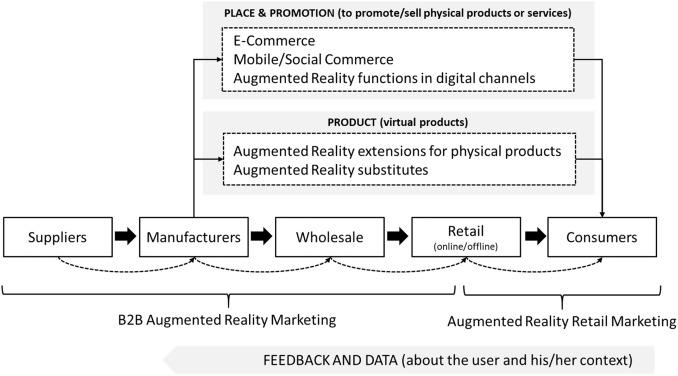Training and Advancement Manager: Key Education Requirements and career Insights
Are you passionate about education technology and eager to help educators grow in their roles? If so, a career as a Training and Development Manager at universities, colleges, or schools could be your ideal path. As EdTech transforms teaching, these professionals play a pivotal role in designing, implementing, and optimizing training programs for faculty and staff. In this article, you’ll discover everything you need to know about education requirements, critical skills, career outlook, benefits, and proven tips to launch your journey as a Training and Development Manager in the education sector.
What Is a Training and development Manager in Education Technology?
In the context of educational institutions, a Training and Development Manager specializes in enhancing the skills of faculty, administrative staff, and sometimes students through the effective integration of technology. These professionals design professional development programs, conduct workshops, assess learning needs, and ensure educators can leverage EdTech tools efficiently for improved learning outcomes.
- Design and deliver professional development sessions
- Evaluate technological proficiency among staff
- Implement learning management systems (LMS)
- Support digital conversion initiatives
- Monitor and report training outcomes and effectiveness
Key Education requirements for a Training and Development Manager
One of the primary steps toward a career in training and development management within education technology is meeting the necessary educational criteria. Here’s what you’ll typically need:
Bachelor’s Degree
Most positions require at least a Bachelor’s degree. Preferred majors include:
- Education
- Instructional Design or Technology
- Human Resource Development
- Organizational Psychology
- educational Leadership
Master’s Degree
For managerial and leadership roles in higher education, a Master’s degree is often highly recommended or required. Relevant graduate programs include:
- Master’s in Education Technology
- Master’s in Curriculum and Instruction
- Master’s in Human Resource Management
- Master of Buisness Administration (MBA) with an HR or EdTech focus
Relevant Certifications
While not always mandatory, specialized certifications showcase commitment and expertise. Popular certifications include:
- Certified Professional in Learning and Performance (CPLP)
- Certified Professional in Training Management (CPTM)
- Instructional Designer/developer Certification
- Google for Education Certified Trainer
Essential Skills and Qualities for Success
To excel as a Training and Development Manager in education technology, candidates must demonstrate a diverse skill set:
- Technological Proficiency: Familiarity with LMS platforms, digital teaching tools, and emerging EdTech trends
- Leadership: Ability to influence, mentor, and guide teachers and administrative teams
- Communication: Exceptional verbal and written communication to explain complex technologies in accessible terms
- analytical Thinking: Assess training outcomes and identify areas for betterment using performance data
- Project Management: Plan, implement, and manage multiple training initiatives concurrently
- Change Management: Drive technology adoption and adapt training to meet evolving educational needs
Pathways to Becoming a Training and Development Manager in Education
Success in this field is often built on layered experiences. Here’s a step-by-step roadmap for aspiring Training and Development managers in the EdTech domain:
-
Begin with an Entry-Level position:
- Start as a technology integration specialist, instructional designer, or professional development coordinator.
- Gain first-hand experience working with educators and learning technologies.
-
Pursue Advanced Education and Certifications:
- Complete relevant master’s degree programs and professional certifications.
-
Build a Diverse Skill Set:
- Lead workshops, present at conferences, and participate in EdTech pilot programs.
-
Seek Managerial Positions:
- Apply for Training and Development Manager or Director roles in K-12, higher education, or district-level administration.
- Demonstrate leadership and measurable impact in previous roles.
Career outlook and Employment Opportunities
The integration of technology into the educational habitat continues to rise, resulting in robust demand for Training and Development managers.According to recent labour statistics, employment in this field is projected to grow as schools and universities prioritize digital literacy.
- Universities and Colleges: EdTech project management, faculty training, and instructional design leadership
- K-12 schools: District-level EdTech coordination, staff professional development, and new technology onboarding
- EdTech Companies: Curriculum consultant, training leader, or user adoption specialist
As digital transformation accelerates in education, professionals who understand both teaching and technology trends are exceptionally well-positioned.
Benefits of Working as a Training and Development Manager in Education Technology
- Impact: Directly influence educational quality and student learning through technology
- Continuous Learning: Stay at the forefront of the ever-evolving EdTech landscape
- Collaboration: Work with diverse teams, including educators, administrators, and IT specialists
- Career Mobility: Skills are transferable to corporate, non-profit, or EdTech industry sectors
- Competitive Compensation: Managerial education roles frequently enough offer attractive pay and benefits packages
Practical Tips for Job Seekers in EdTech Training and Development
Breaking into training and development management in the education sector can be competitive. Here are strategic steps to boost your employability:
- Network Widely: Attend EdTech conferences, webinars, and professional meet-ups to connect with potential employers and mentors.
- Build a portfolio: Collect evidence of past training programs, curriculum designs, and technology integration projects.
- Emphasize results: In interviews and resumes, highlight specific cases where your training initiatives resulted in increased technology adoption and improved teaching outcomes.
- Stay Current: Regularly update your knowledge of new educational technologies,software upgrades,and virtual learning environments.
- Seek Leadership Roles: Volunteer to lead committees, mentorship programs, or school/district-level technology adoption efforts.
- enhance Soft Skills: Demonstrate adaptability, empathy, and the ability to work collaboratively across disciplines.
Conclusion: Take the Next Step Toward a Rewarding EdTech Career
The role of a Training and Development Manager in education technology is dynamic, impactful, and increasingly essential to the future of teaching and learning. By meeting the educational requirements, honing your skills, and pursuing relevant experience, you can position yourself as a leader in this growing field. Whether you dream of working at a university,community collage,or K-12 school,now is the perfect time to invest in your professional development and embark on a fulfilling career at the intersection of education and technology. Take the first step today—your journey to shaping future-ready educators starts here!

